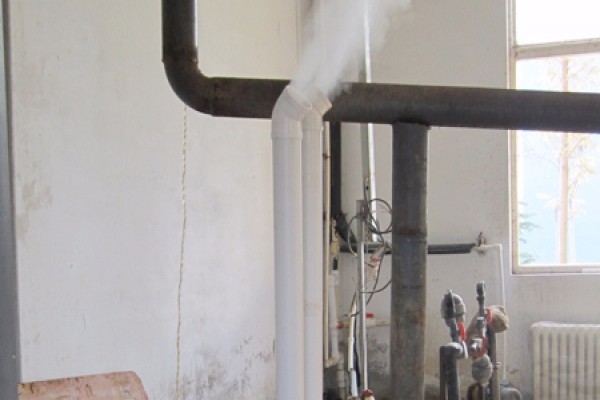Do we need to deodorize the farm in winter?
How to deodorize breeding plants in winter? The deodorization skills of poultry farms have been one of the development directions in recent years, especially in the breeding of poultry. In winter, due to the need for insulation, it is necessary to seal the poultry houses well. However, the result of doing so is that the air inside the houses is very choking, which easily leads to wheezing and bronchitis in poultry. At the same time, it greatly affects the growth rate and feed to meat ratio of poultry, resulting in serious economic losses. In addition, the odor from breeding farms often affects the air quality of the environment and the living environment of residents. Developed countries have mostly required large breeding farms to control air pollution in the surrounding environment.
According to reports, a concentration of 50ppm ammonia can significantly increase the secretion of oral, nasal, and lacrimal glands in pigs, making them susceptible to respiratory diseases and significantly reducing productivity; Chickens are particularly sensitive to ammonia odors. A concentration of 20ppm of ammonia can reduce their respiratory rate and significantly reduce egg laying rates. Even under the long-term influence of a concentration of 5ppm of ammonia, chickens can be affected. So improving the air quality of livestock and poultry houses is beneficial for the improvement of their growth performance.
Research has shown that the origin of odor in feces mainly comes from the following pathways. Ammonia in feces mainly comes from uric acid differentiation and deamination of amino nitrogen in feces. Gram negative bacteria, such as Escherichia coli, Proteus, Pseudomonas aeruginosa, Shigella dysentery, and Pseudomonas aeruginosa in the intestine, have deaminase activity, producing ammonia from amino nitrogen, hydrogen sulfide from cysteine or cysteine, and fecal odor from tryptophan. These bacteria also have decarboxylase activity, producing amines (cadaverine, humic acid) from amino acid decarboxylation. In addition, bacterial urease has deamination effect on uric acid. Ammonia gas, etc. occurs. The data also shows that there is a direct relationship between the pH value of feces and ammonia release. When the pH is less than 7, the amount of ammonia release is small, and when the pH is greater than 7, the amount of ammonia release is accelerated (Reece et al., 1979).

It can be seen that to control and reduce the odor in the breeding ground, the following methods can be used: controlling the source of odor, suppressing various harmful bacteria, or killing harmful bacteria; Selecting beneficial bacteria to improve the micro ecological environment inside the building; Select effective adsorbents to adsorb odor components, or use aerobic microorganisms to absorb assimilated ammonia gas; Reduce the pH value in the gastrointestinal tract of animals, or directly use organic acids to neutralize and absorb ammonia gas; Inhibiting urease; Improve the digestion and absorption rate of feed for livestock and poultry, and reduce the emission of amino nitrogen in feces.
The fermentation broth produced using "Yijiayi Biological EM Strain" can achieve the effect of the deodorization principle mentioned above.
In the fermentation broth, it contains 3-8% organic acids (calculated by acid) A pH value of around 4, containing more than 500 million beneficial bacteria per gram (mainly lactic acid bacteria, photosynthetic bacteria, bifidobacteria, Streptococcus lactis, acidophilus, yeast, etc.), containing more than 800 million yeast cells per gram, containing the sweet wine flavor produced by fermentation, as well as growth promoting substances produced by specific bacteria (to avoid counterfeiting of this product, several bacterial types are strictly kept confidential), antibacterial substances, hydrogen peroxide, acidophilic bacteria, alcohol and other fungicides. Coupled with its low pH value, it significantly improves the digestion and absorption of protein and energy in animal feed, resulting in a significant decrease in the nutrient content in the feces secreted by animals, which is suitable for the deodorization principle introduced earlier.
We used it in an experiment on a layer farm, and the results showed that the "fermentation liquid" (filter to remove the residue) spray could significantly reduce the odor in the dung gathering places, corners and other places, and because of the effect of alcohol, there was a fresh, mellow smell in the air, durability, adhesion, and the concealment of odor.
The article originates from a deodorant manufacturer http://www.scneng.com.hk
-
06-11
"Environmental Doctor" Du Siyuan: Environmental Protection is a Lifestyle Attitude
There is a Hong Kong compatriot in Jiangmen who often frequents various farms and plantations, walks in mechanical factories, and is seen by others as the nemesis of environmental problems. He conside
-
03-16
Deodorant manufacturer: Deodorants reduce soil pollution
Waste is a chaotic mixture of various components. The accumulation of debris on the surface of soil can cause some chemical reactions, releasing harmful gases, which can lead to soil pollution and eve
-
12-01
Deodorant Manufacturers: Differences between Microbial Deodorants and Traditional Deodorants
The waste that is not needed in our daily life and work is called waste. Due to the large amount of waste discharged and the complex categories, there are great difficulties in reducing waste and deod
-
11-08
Application of Deodorant Manufacturers in Domestic Waste Treatment
Garbage is the waste generated in everyone's daily life and work. Due to its large discharge volume and complex and diverse composition, it poses great difficulties in reducing and deodorizing wa
